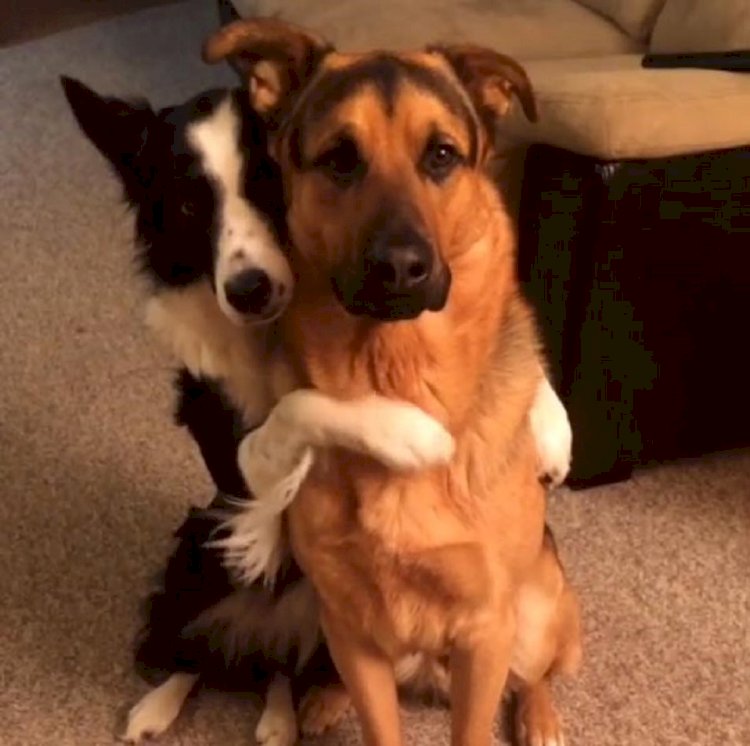How to Socialize your Puppy
In this article you will learn the methods to socialize your puppy with others.

One of the most valuable lessons you can teach your puppy is that the world is a safe place, with kind humans and friendly dogs and other animals. The act of exposing your puppy to the world is called socialization. Many puppy owners have heard that this is important but really don't know how to go about doing it correctly. If you do it right, you'll help your puppy grow up to be confident and outgoing. If it's done wrong, you can inadvertently create a frightened, aggressive puppy.
A critical time for your puppy's learning is from birth to 16 weeks of age. During this time, puppies can absorb a great deal of information, but they are also very vulnerable to bad experiences. Puppies who are not properly exposed to different types of people and other animals can find them very startling or frightening when they do finally encounter them at an older age. They may react by growling, cowering, or even biting. But if they have positive experiences with people and animals before they turn 16 weeks of age, they are less likely to be afraid of them later.
Soon after you bring your puppy home (preferably no younger than eight weeks of age), it's time to start your socialization training program.
Protecting Your Puppy's Health
Most puppies will not get all their shots until they are 15 to 16 weeks of age. Some breeders and veterinarians recommend an even more extended schedule. It's very important that you do not expose your puppy to dangerous diseases until she's had vaccinations to protect her. Puppies can get diseases by walking where sick dogs have been and by picking up traces of feces or other bodily fluids. Some viruses, such as the parvovirus, are extremely durable and contagious, and it only takes a small amount of exposure to infect your puppy.
How do you prevent exposure? Do not let your puppy walk in public places. This means that you should not let your puppy walk in the neighborhood or in public parks until she has had all her shots. If you must take your puppy to these places, carry her. Of course, this will be easier with a Maltese puppy than it will be with an English Mastiff, but it's up to you to keep your puppy safe. The need to keep your puppy safe from disease can compete with the need to socialize her. If the ideal window for socialization is up to 16 weeks, and your puppy will not complete her shot series before then, how can you expose her to the world? Here's how to do it safely:
Invite friends and family to your house.
If your puppy can't get out, bring the people in! Ask them to remove their shoes before coming into your home just in case they've stepped in something that can cause your puppy harm.
Invite safe, friendly dogs to your home.
If you have friends who have suitable dogs for your puppy to meet, invite them to come play at your place.
Only visit safe houses.
If you have friends who have a suitable, healthy dog who would play well with your puppy, visit their homes. This is safer than letting your puppy walk in a public park or in a neighborhood where you don't know the dogs who have been there. Be sure to carry your puppy from the car into your friend's home.
Do not let your puppy run up to dogs you don't know, especially at the veterinarian's office.
Dogs who visit the veterinarian may be sick. If you let your puppy greet them, you could be exposing her to a contagious disease. Carry your young puppy into the veterinarian's office, and keep her in your lap (or in her crate) until her immune system is protected.
These simple steps will allow you to socialize your puppy while minimizing exposure to disease.
Puppy Socialization with People
Here are some guidelines for positive socialization experiences with people:
Pick different people.
Puppies should be exposed to people of different genders, different ethnicities, different ages, different shapes and sizes. The more variety you introduce, the quicker she will learn that variety is the spice of life!
Pick the right people.
Make sure that everyone you choose to interact with your puppy knows how to do so in a positive manner. If children cannot hold or pet your puppy correctly, they should not interact with her. If an adult will be rough with your puppy, he should not interact with her. Remember, a negative experience during this critical time can make your puppy afraid.
Once you have the right people in place, here are some fun socialization games to play.
Pass the Puppy
Divide your puppy's meal of kibble into small plastic bags, one bag for each person visiting. Before starting the game, if necessary explain to everyone how to properly hold the puppy by supporting her rear end. The first person then picks up the puppy and gives her a piece of kibble. The person touches one of her paws, gives her a piece of kibble. Touches another paw, gives a piece of kibble. Touches her ears, gives a piece of kibble. Touches her tail, gives a piece of kibble. Looks at her teeth, gives a piece of kibble. Then the person passes the puppy on to the next person, who goes through the same routine. This game teaches your puppy that it's rewarding to have people touch her all over her body.
Puppy Recalls
Divide your puppy's meal of kibble into small plastic bags, one bag for each person visiting. Have everyone sit in a circle on the floor, with the puppy in the center of the circle. One person calls the puppy to come and holds out the piece of kibble. When the puppy goes to the person, she gets the kibble and lots of petting and praising. Then someone else in the circle repeats the routine. This game teaches your puppy that it's rewarding to approach people.
Puppy Socialization with Other Dogs
With future dogs you have at home, it's important to expose her to different dogs at an early age so that she learns to get along with them properly. Puppies who are not socialized with other dogs sometimes never learn to "speak dog" and have fear or aggression problems with members of their own species. It's very important to only pick safe dogs to interact with your puppy so that she has positive experiences. If you have a tiny 3-pound (1.4-kg) Yorkshire Terrier, it's not a good idea to let her play with a bouncy 30-pound (13.6-kg) Labrador Retriever puppy. The Lab puppy could hurt your Yorkie without meaning to; the size difference is just too great. Now, if it's an older Labrador Retriever with a proven history of being safe and gentle around young puppies, it may be perfectly fine. Just be sure that you know the other dog well before risking injury.
Socialization: What Not to Do
All socialization is not good socialization. Bad experiences at an early age can make negative impressions for years to come. Sometimes, certain situations are just too much for your puppy. If she is having a good time, she will look the part. Her ears will be up, her eyes will be bright, and she may wag her tail or whole body and actively seek interaction. If your puppy is not enjoying herself, learn to recognize her signs of stress to avoid causing emotional harm (for a graphical illustration click here):
cowering or clinging
ears down and back
lip licking
sleeping (all young puppies take frequent naps, but if you find your puppy sleeping a lot when you have her out or at a busy event, she may actually be shutting down)
tail tucking
turning the head or body away from people who approach
yawning
For example, let's say you take your puppy to your child's soccer game. You see that she's flinching at the loudspeaker and getting a bit clingy. She starts to whine. Your child's team rushes around her to pet her. She licks her lips, turns her head away, and yawns. She tries to crawl in your lap or under the bleachers. These signs of stress mean that your puppy is not having a good socialization experience. You may actually be teaching her that children, large groups of people, or playing fields are cause for worry. Forcing her to remain there or hoping she'll get used to it might only make things worse.
If you see signs of stress in your puppy, immediately remove her from the situation until she relaxes. Take it much slower with your puppy, and gradually get her used to this level of stimulation.
Excerpts adapted from:
Puppy Care and Training 2007 T.F.H. Publications, Inc
SOURCES
[1] "Nylabone"
[2] "Positively"
[3] "Pet Place"
[4] "Pet Education"
[5] "Green Acres"
[6] "The Kennel Club"
[7] "Dog Conspiracy"






















